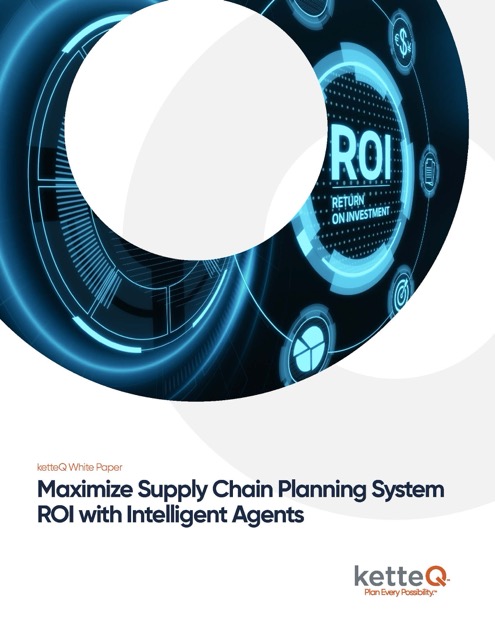%2520(460%2520%25C3%2597%2520478%2520px).jpeg)
Solutions Director Bruno Zindy Talks Global Market Trends as ketteQ Expands Reach into Europe, Japan
As supply chain challenges persist across all global markets, the more insight and real-time reaction, the better.
ketteQ Solutions Director Bruno Zindy is playing an instrumental role in ketteQ’s global expansion, keeping an eye on the specific needs of overseas supply chain companies as foreign companies grapple with supply chain challenges. We sat down with Bruno to get insights on what overseas companies need most to navigate disruption while they grow.

Q: What are the key challenges and needs of European companies now as global supply chain challenges persist?
A: In Europe, companies generally are smaller and want to move a bit faster. This includes France and Germany, where ketteQ is expanding, along with Japan. It’s very important that solutions are built to generate value rapidly for these companies. For ketteQ it’s important that we get on the ground quickly and work fast and get results.
The main trend that we see for European companies is the repatriation of assets. As companies bring manufacturing back from China, final assembly will now happen in Europe as they work to reduce their dependency on Asian manufacturing. More companies will be reshoring and managing complete manufacturing sites and need to optimize strategy to get competitive results. Companies need the right tools to support moving manufacturing and need the right solutions for long-term strategy optimization and risk reduction.
Q: How have supply chain management strategies and approaches changed and what’s next?
A: When I started out in the supply chain industry some 25 years ago, we were busy disrupting ERP systems. At the time, we concentrated on resolving global optimums rather than local ones. Then, we worked to make systems run faster and for many years the industry was focused on refinements and improvements centered around common supply chain planning scenarios. Here we are now with supply chains faced with constant disruption. We are having to rethink everything all the time. But we also have software now that can help with that level of rethinking. We are different now in that we can use new technology and software solutions to assess all the different capabilities that we need in today’s environment, and we can test those capabilities and needs. It is like testing all possible paths to go from one point to the other. We can run multiple simulations and test various scenarios and then figure out the optimal solution for each scenario.
And we are also getting better at making sure there is a connection between planning, forecasting and execution. There are many tools and solutions for each part, but we need solutions that coordinate those parts better and more efficiently. ketteQ is pioneering this new wave of disrupting solutions that will reshape entirely the process of planning and supply chain.
Q: Will supply chain disruptions ease as we head into 2023?
A: I don’t think anybody knows the answer to that question. I would say that there are disruptions we need to take into account, including the ongoing conflict between Russia and Ukraine and rising inflation. In Europe there has been inflation before, of course, but now you have a dynamic environment where companies must shift pricing to keep up with inflation while managing and preparing for other unpredictable disruptions. The traditional market signals haven’t changed, but the impact on businesses tends to be more important as the margin for reaction decreases and that requires new thinking and tools to manage that change.
Europe shares concerns with the rest of the global market around climate change and the greening of the economy and what that will mean for supply chain businesses. Major companies are now investing in finding how to limit their impact on the environment and look for ways to include the optimization of these new KPIs as part of their business plans.
Q: What differentiates ketteQ’s solutions when it comes to managing global supply chain change?
A: There are two big differentiators for ketteQ’s advanced software solutions – the enablement of more agile forecasting and planning processes and the ability to redefine demand planning workflows. Being integrated with Salesforce makes a huge difference in the effectiveness of ketteQ’s solutions. Thinking about the basics of supply chain, the triggers for demand are found within CRMs. Of course, there are integrations with ERPs, but having a platform built in and deployed on Salesforce and AWS means we can define demand signals and create demand sensing and real-time reactions and visibility.
Traditionally the integration with the ERP’s has ignored the ability to sense signals coming from the Salesforce organization and is a source for failure of the closed loop planning everyone is looking for.
ketteQ also has a lot of knowledge around spare parts planning and how to integrate roles within the manufacturing chain. This will become more and more important as reusing and recycling are becoming more of the norm nowadays. Our software solutions are very good at bringing together roles and divisions within a company that have typically been operating in isolation.
Complete visibility across the entire supply chain is now critical along with better integration. There has traditionally been limited real-time insight. When a salesperson hangs up the phone and logs in an opportunity, we want that to immediately be visible in the control tower and we want to immediately be able to identify any resource or supply chain issues that exist that could limit that opportunity so that action can be taken quickly. ketteQ’s integration with Salesforce makes that possible.
As supply chain challenges persist across all global markets, the more insight and real-time reaction, the better.
If you are ready to grow your supply chain business or are reshoring and managing new manufacturing sites, give us a call to discuss how ketteQ’s solutions can rapidly transform your operations. Let’s connect.





